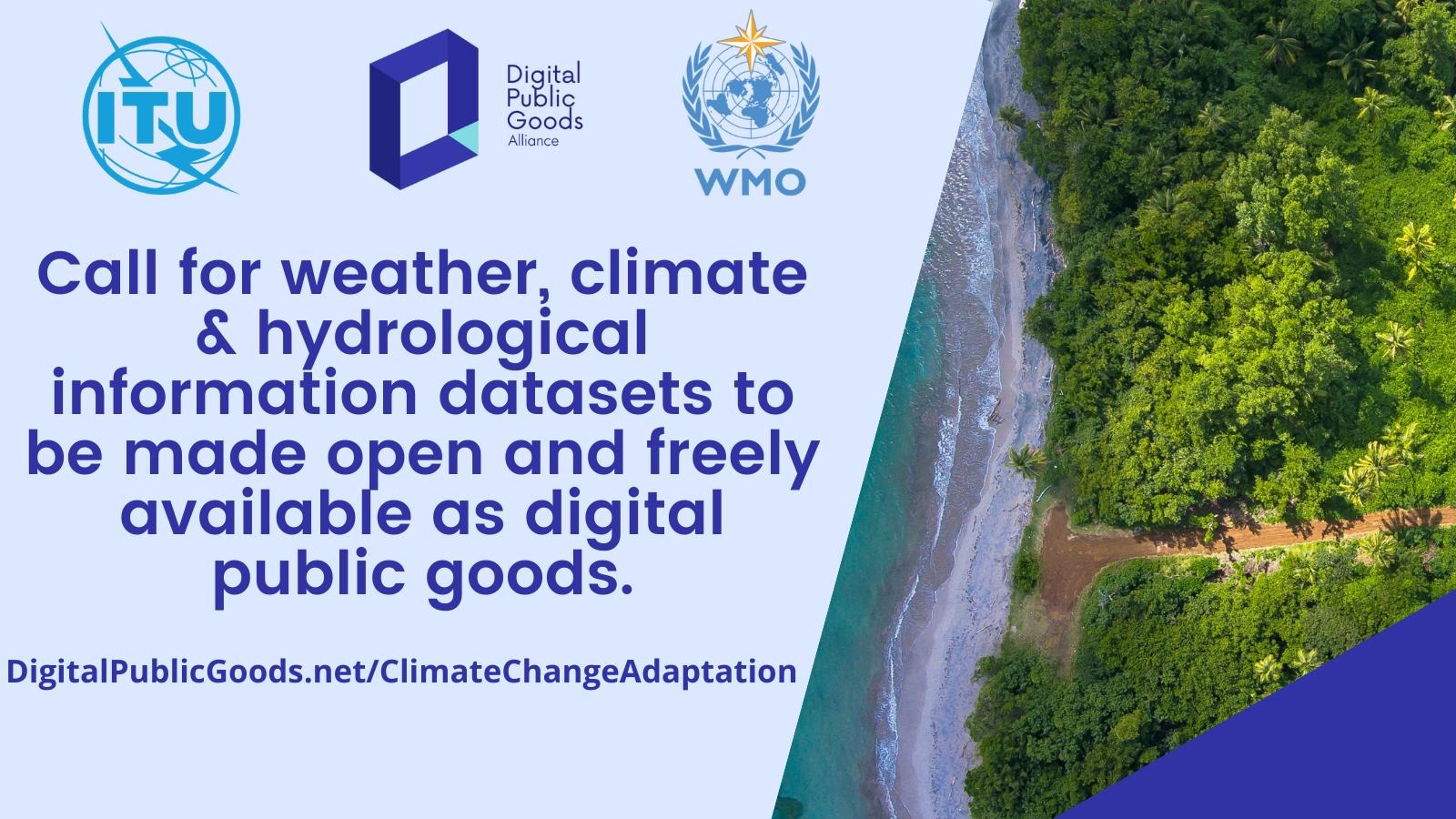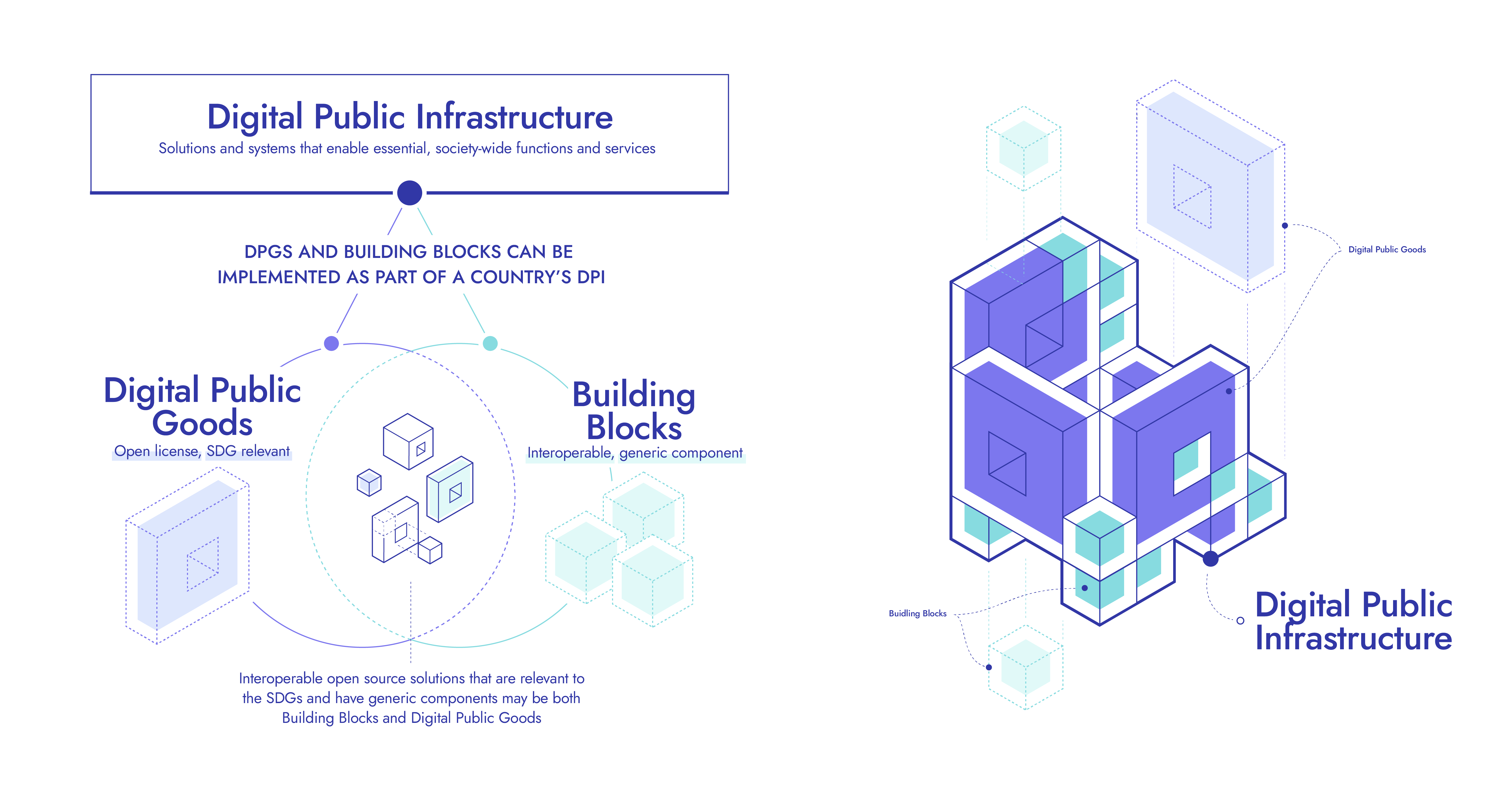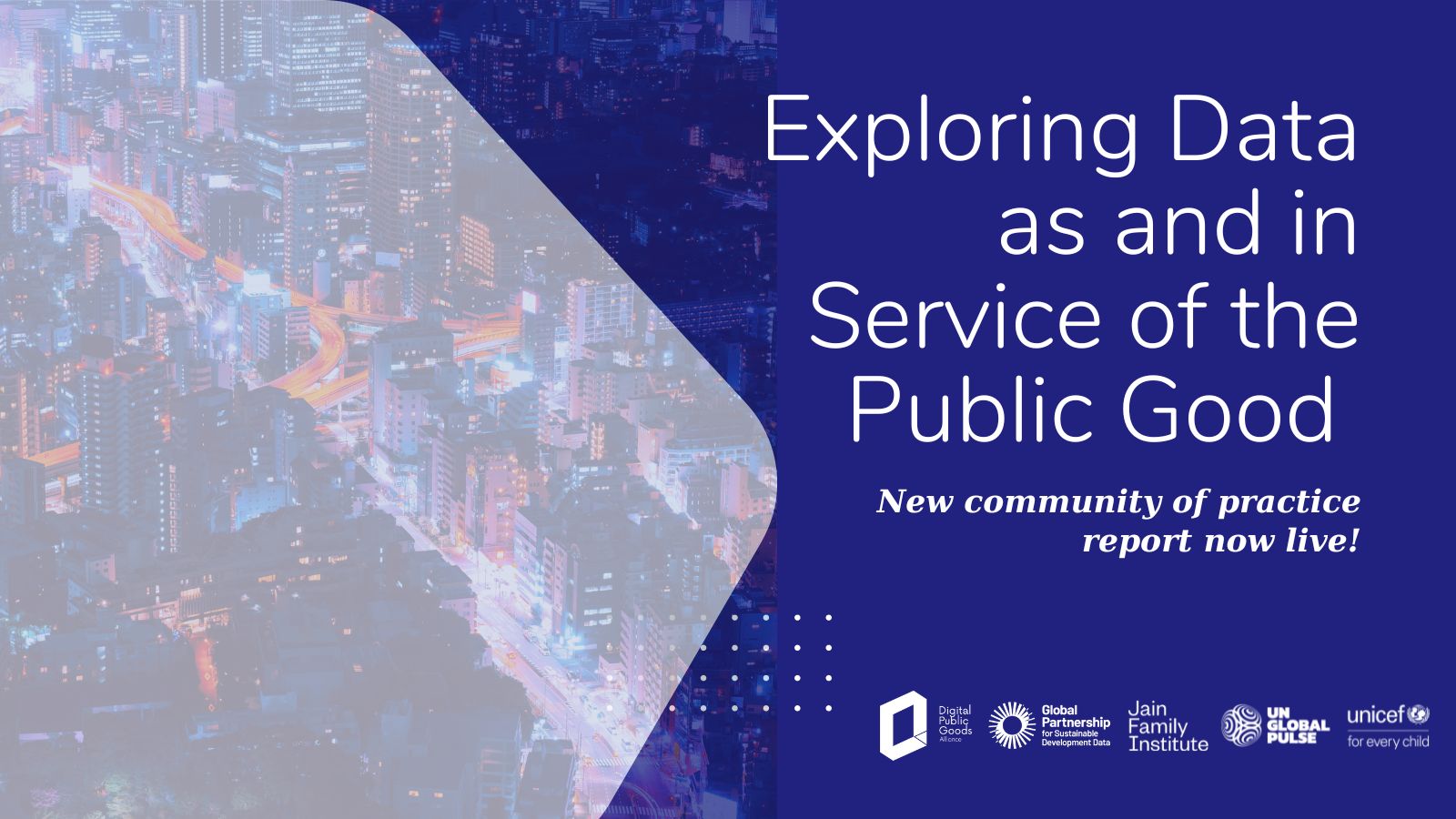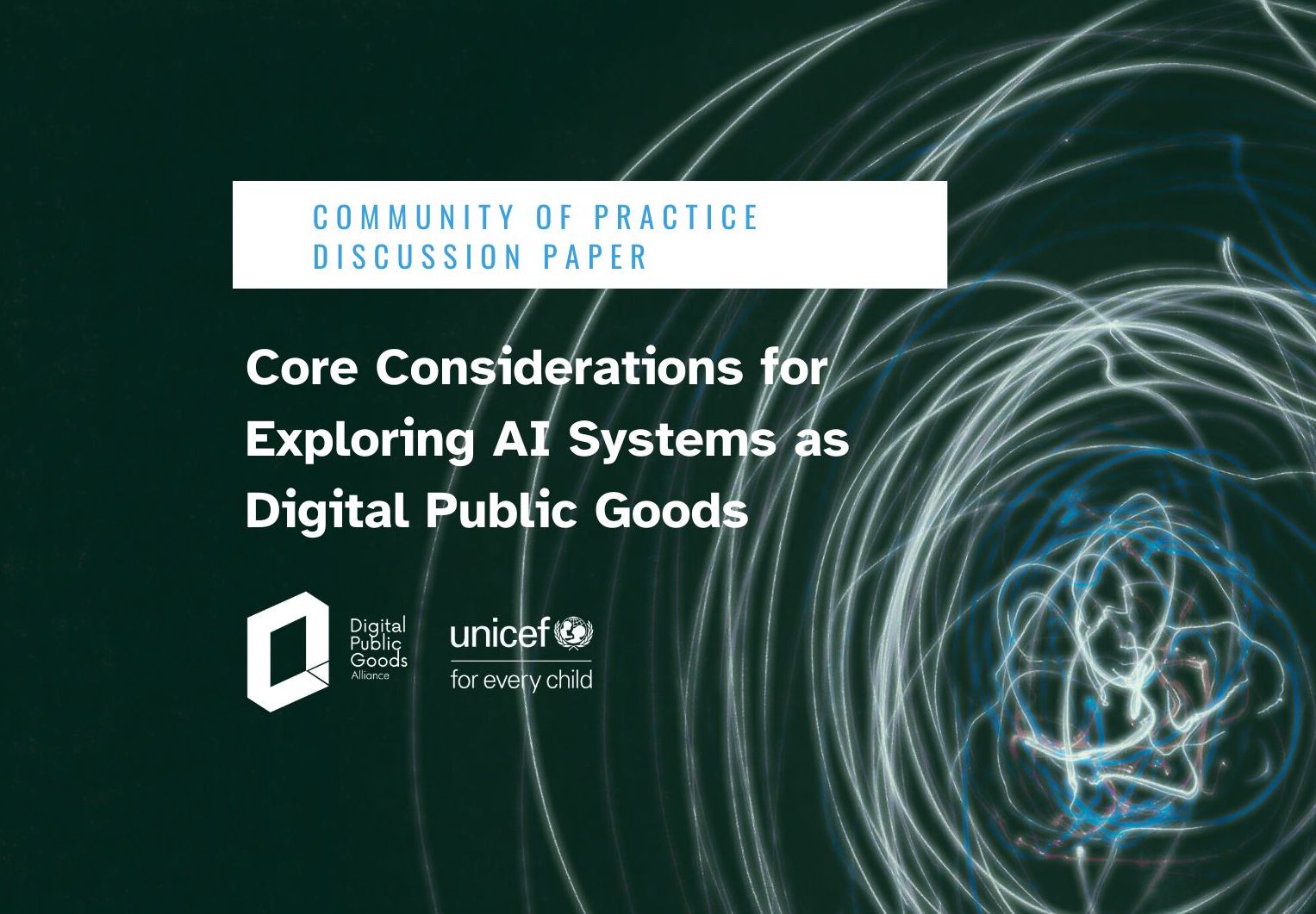Community of Practice Reports
Communities of Practice (CoPs) are groups of experts who convene to support the discovery, assessment, and advancement of digital public goods with high potential for addressing critical development needs and responding to urgent challenges. CoPs are a means of bringing together experts from organisations that are engaged in work related to a given topic, leveraging years of experience while simultaneously facilitating dialogue and alignment across these institutions and their networks.
All CoPs are led in collaboration with co-chairing organisations that have extensive sector-relevant knowledge. Each CoP scopes and defines a particular focus area based on inputs from governments, multilateral organisations, and other stakeholders in the DPG ecosystem. The purpose of this process is to highlight digital public goods that can meet particular high priority needs.
Based on recommendations from Communities of Practice, the Digital Public Goods Alliance produces reports highlighting sector-specific digital public goods.
Below are both the final reports and midterm reports that were produced in support of the CoP’s efforts.
Financial Inclusion
This report highlights digital solutions specifically for their relevance in facilitating inclusive financial workflows at scale and enabling other solutions as DPI, in addition to their ability to meet the DPG Standard. Six digital public goods are highlighted: Apache Fineract, Mifos, Mojaloop, MOSIP, OpenCRVS, and X-Road.
Health
Calling for immunization delivery management systems to become digital public goods, the CoP complemented and extended existing efforts to showcase health solutions with relevance to: immunization delivery management; the DPG Standard; and the Digital Square Global Goods Maturity Model. Thirteen digital public goods are highlighted in this report. This CoP first clarified the relationship between DPGs and global goods.
Climate Change Adaptation
The limited availability of high-quality datasets is hindering decision-making and stifling technical innovation which has the potential to address critical climate change adaptation needs. This report, co-authored by ITU and WMO, calls for weather, climate, and hydrological datasets to be made open and freely available as digital public goods. In addition, the report highlights eight DPGs that exemplify how open datasets can power open-source technologies for climate change adaptation.
GovStack
Co-chaired by GIZ (Deutsche Gesellschaft für Internationale Zusammenarbeit), the GovStack CoP is identifying and supporting the advancement of digital public goods with relevance to a “whole of government digital transformation approach”, or GovStack. Still underway, this work started by clarifying what digital public infrastructure is and it’s relationship to digital public goods and building blocks. That work can be found here.
Open Data
Recognising the transformative role that the use of data presents for advancing development globally – and the challenges therein – the open data CoP explored when data can be made openly available as a digital public good and proposed how crucial data governance questions might be approached in situations where data cannot be made open.
Artificial Intelligence
The unprecedented advancement of AI technologies was catalysed by a strong emphasis on open collaboration and sharing. As AI technologies become more prevalent, there is an urgent need to ensure they benefit society. The AI CoP aims to explore the intersection of ethical AI and open source, and
their efforts will inform essential changes to the DPG Standard.
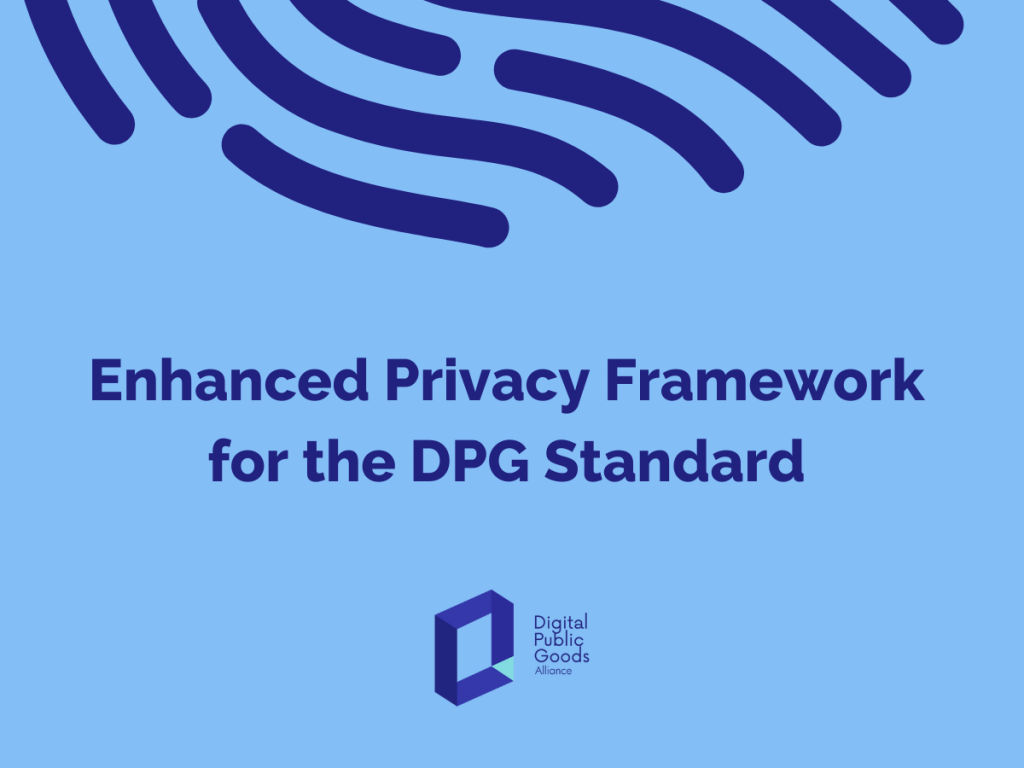
Enhanced Privacy Framework
for the DPG Standard
Privacy compliance is essential to the success, credibility, and sustainability of digital public goods. In April 2024, the DPGA Secretariat, in collaboration with the Open Knowledge Foundation, convened a Standard Expert Group to enhance the privacy components of the DPG Standard. This report outlines their recommendations and the updated requirements for Indicators 7 and 9A, aimed at embedding robust privacy protections into DPG design and development.

Privacy & Data Security Best Practices for Digital Public Goods
This annexure to the DPG Standard outlines privacy and data security best practices for open-source solutions seeking recognition as digital public goods (DPGs). These practices reflect industry standards that align with the DPG Standard’s requirements on privacy, security, and integrity. Based on expert inputs and risk frameworks, it provides recommendations to help applicants comply with Indicators 7 and 9(a) and support trustworthy and sustainable DPGs


